Useful Konglish words
Konglish (콩글리쉬) encompasses loanwords borrowed from English, but are written and pronounced in Korean. These words are usually abbreviations of English words and phrases, but don’t necessarily carry the same meaning as their English counterparts.
We’ve compiled 41 commonly used Konglish words that will level up your Korean skills and save you from embarrassing yourself in front of your Korean friends.
1. 화이팅/파이팅 (hwa-it-ting/pa-it-ting)
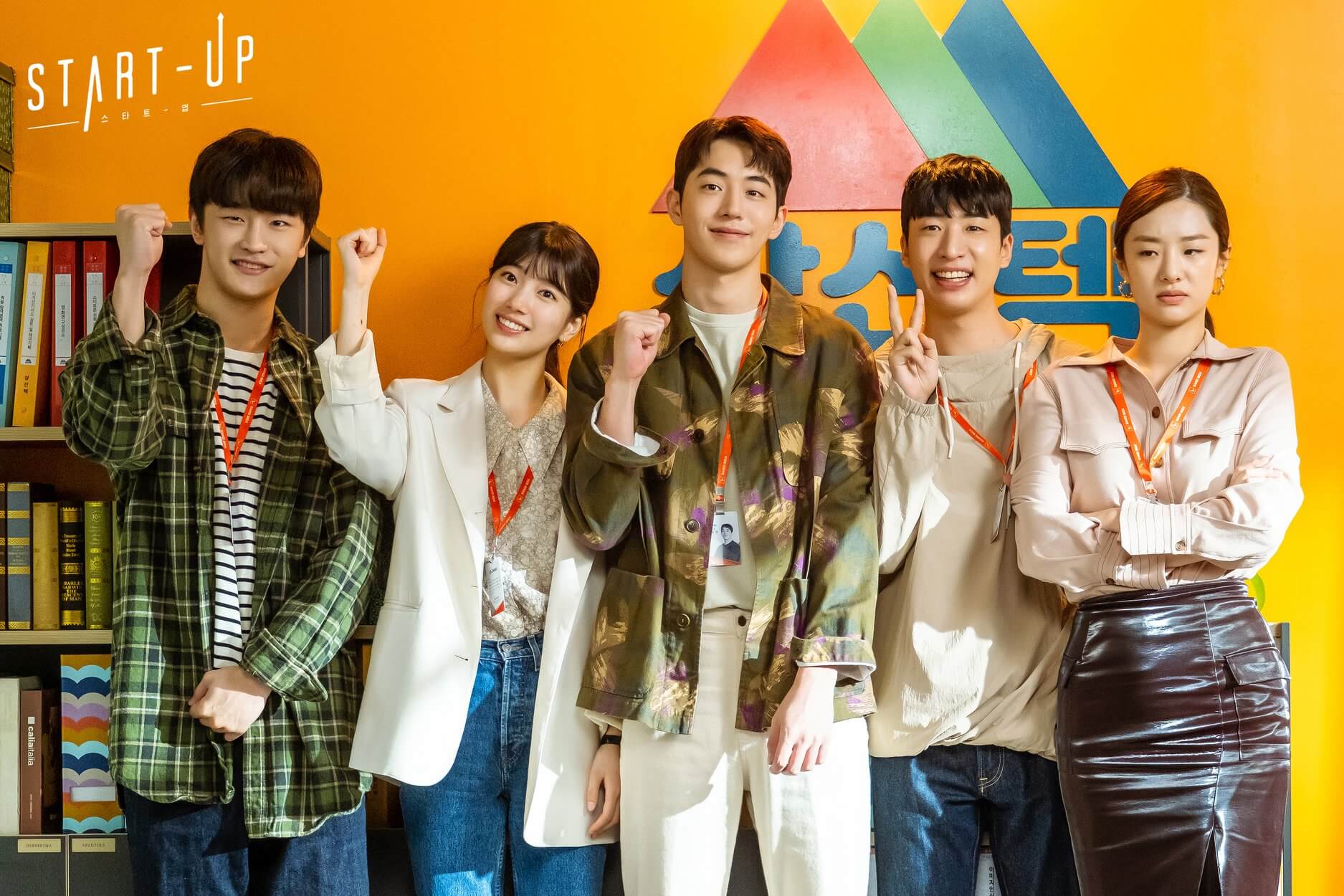
Image credit: tvN 드라마(Drama)
Hwa-it-ting and pa-it-ting are popular Konglish words often used in everyday situations. The Konglish term means “all the best” or “good luck”, and is used to cheer someone on. Because it is derived from the English word “fighting”, it can be easily misunderstood as trying to pick a fight when used outside of Korea.
2. SNS
SNS, pronounced as eh-seu-en-eh-seu, is an acronym of the term “social networking service”. The Konglish term refers to social media in general.
3. 아이쇼핑 (ah-ee-syo-ping)
Ah-ee-syo-ping is an amalgamation of “eye” and “shopping”. In other words, “eye shopping” refers to “window shopping” – shopping with your eyes.
4. 원샷 (won-syat)
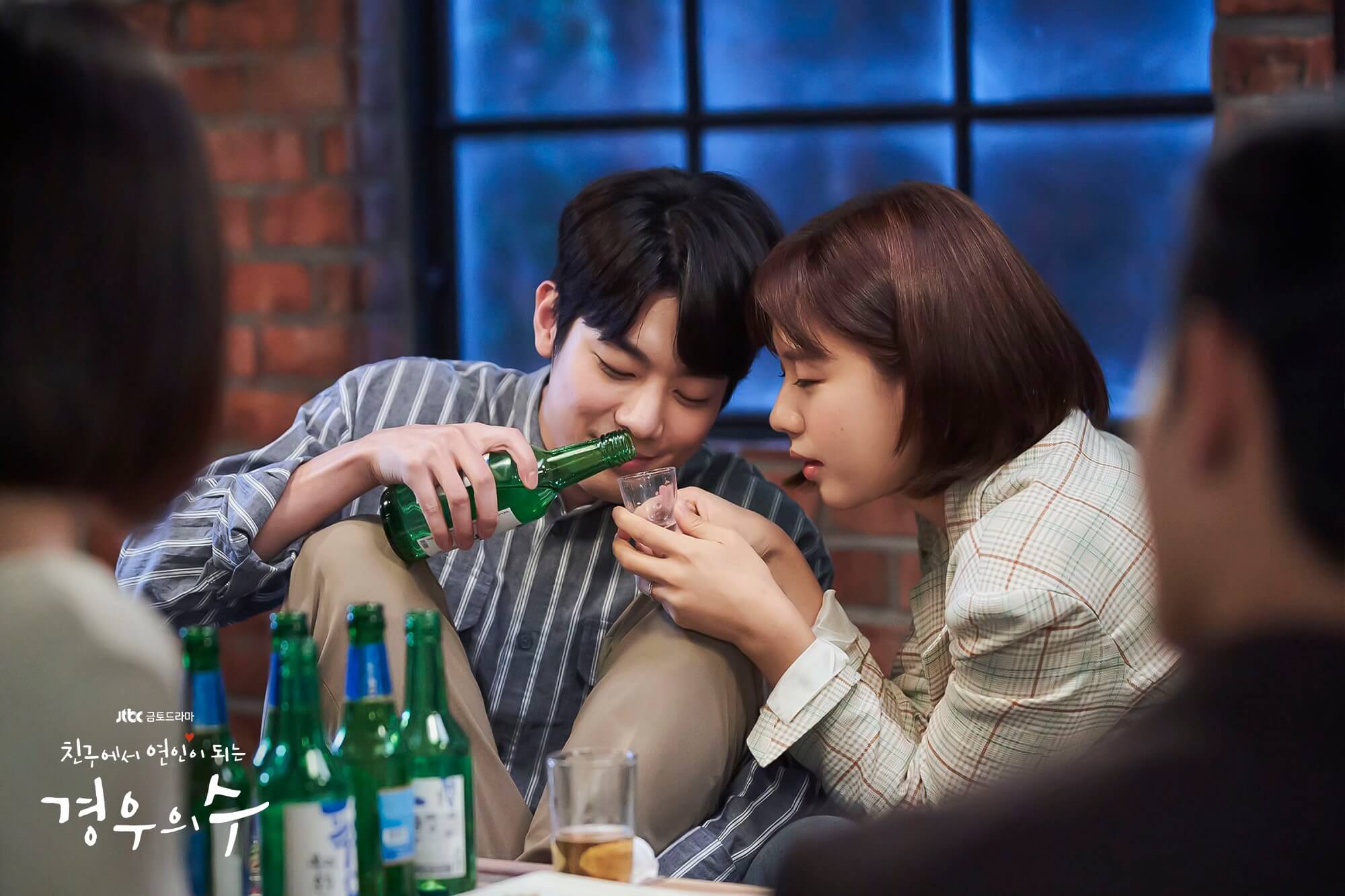
Image credit: JTBC Drama
When you drink in a group in Korea, there’s bound to be one person yelling “won-syat” in an attempt to get someone to down their cup of alcohol in, well, one shot. Besides soju, won-syat can also be used when drinking other types of alcoholic beverages, such as beer or makgeolli.
5. 노트북 (no-teu-buk)
The first thing that comes to mind when we hear no-teu-buk – derived from “notebook” – is a small book with blank or ruled pages. However, the Konglish term actually refers to laptops. Actual notebooks, on the other hand, are called 공책 (gong-chaek) in Korean.
6. 모닝콜 (mo-ning-kol)
Mo-ning-kol, or morning call, is a wake-up call you get in the morning. The Konglish term is commonly used in hotels where you can arrange for someone from the front desk to be your human alarm clock.
7. 셀카 (sel-ka)
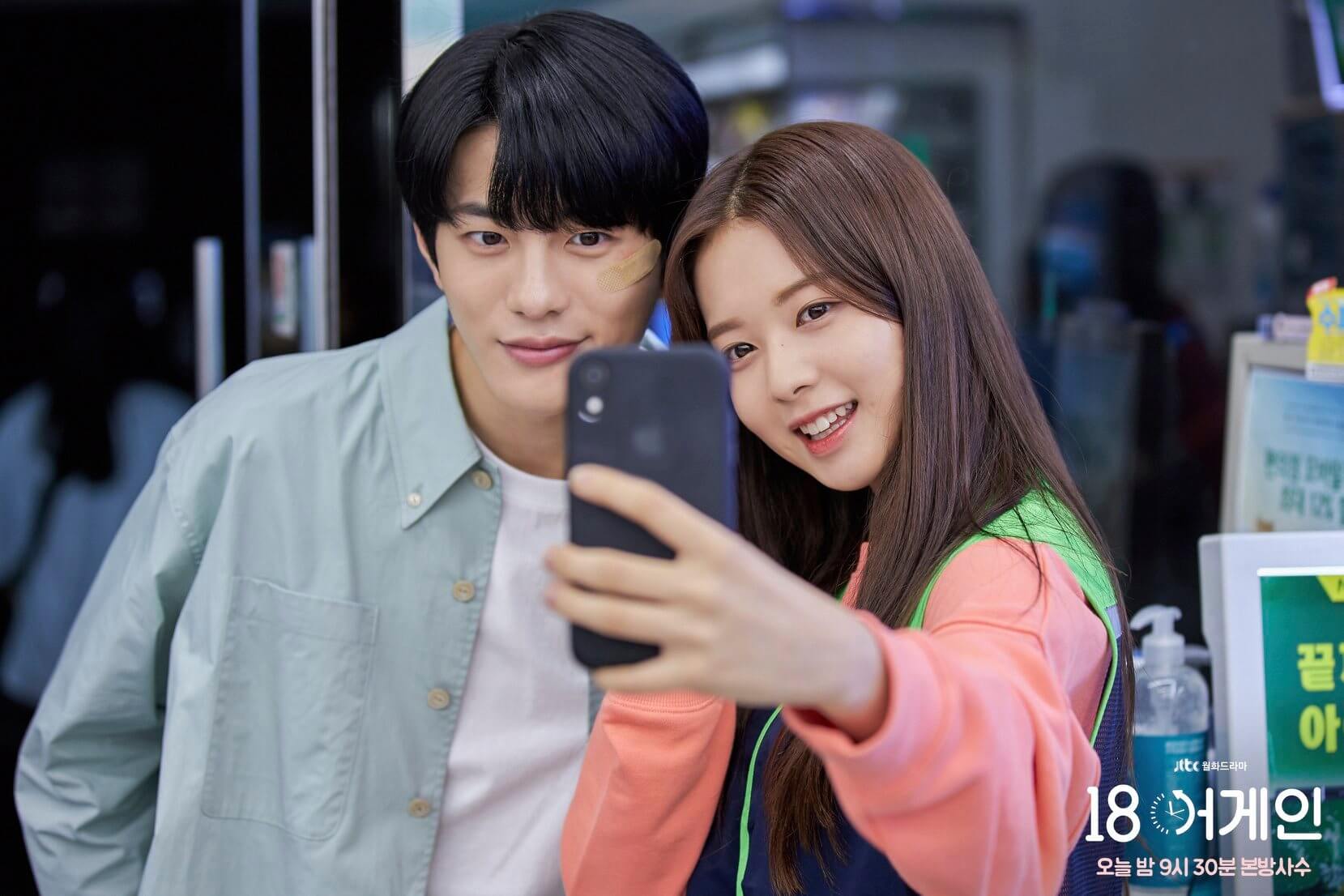
Image credit: JTBC Drama
You’ll rarely hear anyone saying “let’s take a selfie” in Korea because selfies are better known as sel-ka in Konglish. It is an abbreviation of the words “self” and “camera”. This term is also a slang word commonly used among youths.
In English-speaking K-pop and K-drama communities, sel-ka is usually spelt as “selca”.
8. 언택트 (eon-taek-teu)
Eon-taek-teu combines the English prefix “un” and the word “contact” to form “untact”. It means “zero contact” or “contactless”, and describes situations where there is no physical contact. The term emerged in 2020 due to the COVID-19 pandemic.
To curb the spread of the virus, people started to engage in more “untact” activities, such as attending online workshops and doing online shopping. Even K-pop idols have shifted their interactions with fans to the digital realm by holding online fan meetings and participating in online concerts such as the 2020 SUPER ON:TACT concert.
9. 스킨십 (seu-kin-ship)

Image credit: JTBC Drama
Seu-kin-ship is a Konglish term that combines the words “skin” and “relationship”. It refers to physical contact or being physically close to someone. When couples put up a public display of affection (PDA), they can be described as engaging in too much “skinship”.
10. 미팅 (mee-ting)
The word “meeting” refers to the “gathering of 2 or more people” in English, but the Konglish term means something more than that. Meeting refers to 3-on-3 group dates, usually set up by 2 people of differing genders.
This is different from 소개팅 (so-gae-ting; blind date), which is where 2 strangers meet in a somewhat formal setting. A meeting is meant to help pair one’s friends up in a casual manner.
11. 헌팅 (heon-ting)
Heon-ting is derived from the English word “hunting”. But instead of hunting animals, the Konglish term refers to the act of hitting on someone or trying to pick them up.
In Korea, there are hunting bars (헌팅포차) where singles can visit to meet someone new.
10. 비닐백 (bi-nil-baek)
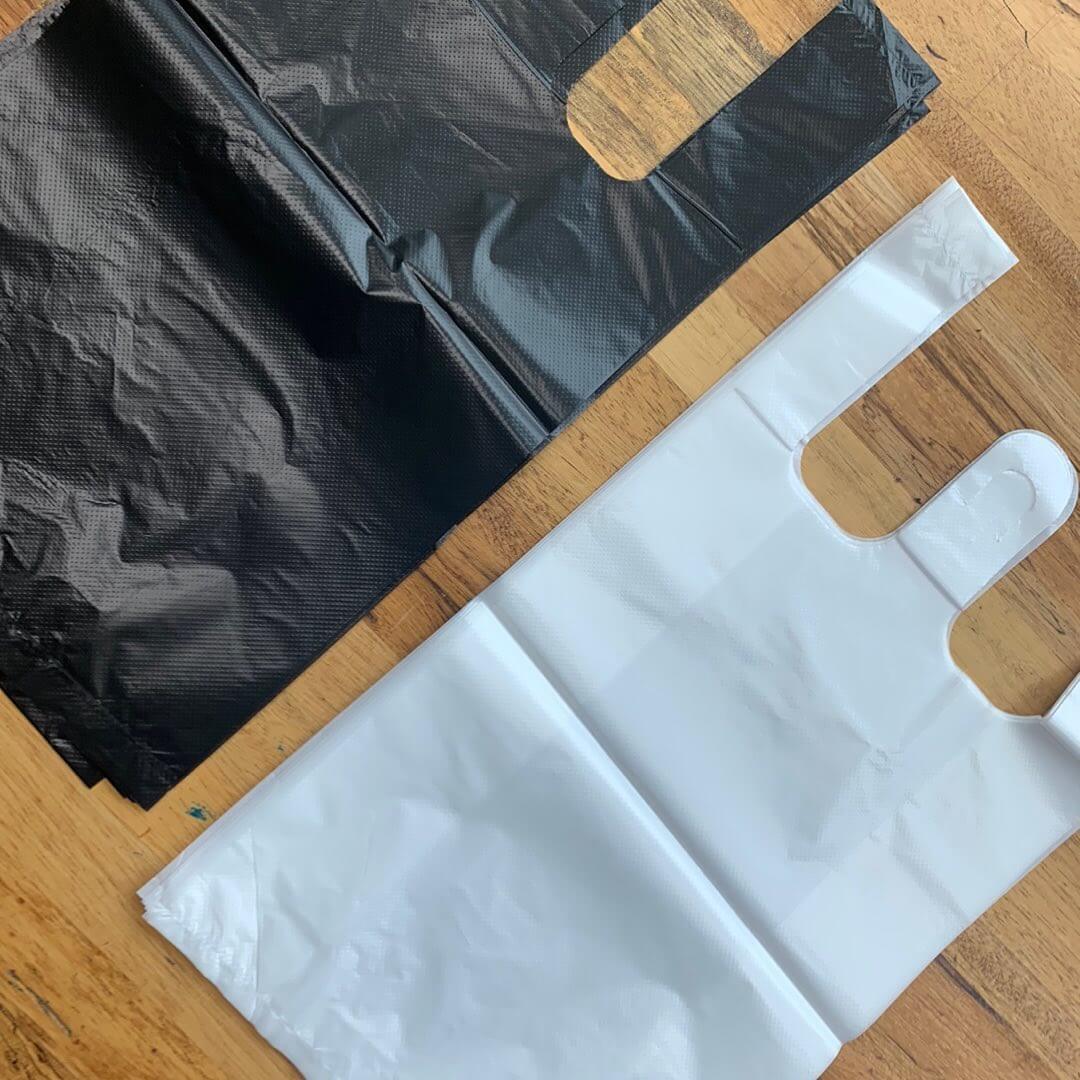
Image credit: @onechic0206
If you’re shopping in Korea and need a bag to carry your purchases, don’t bother asking for a “plastic bag”. In Korea, plastic bags are known as bi-nil-baek or “vinyl bag” in English. Some people also use 비닐 봉투 (bi-nil-bong-tu), which means the same thing.
As most shops are striving to become more eco-friendly and charge a small amount for plastic bags, we recommend you to bring an eco-bag (에코백, eh-ko-baek) along when shopping in Korea.
13. 센스 (sen-seu)
The English word “sense” refers to the ability to detect something. Similarly, in Konglish, sen-seu refers to someone who can read situations well and act appropriately. Another word that carries a similar meaning is 눈치 (nun-chi).
14. 멘탈 (men-tal)
In English, “mental” refers to matters related to the mind. On the other hand, the Konglish term men-tal specifically refers to one’s mentality or attitude towards something.
15. 서비스 (seo-bi-seu)
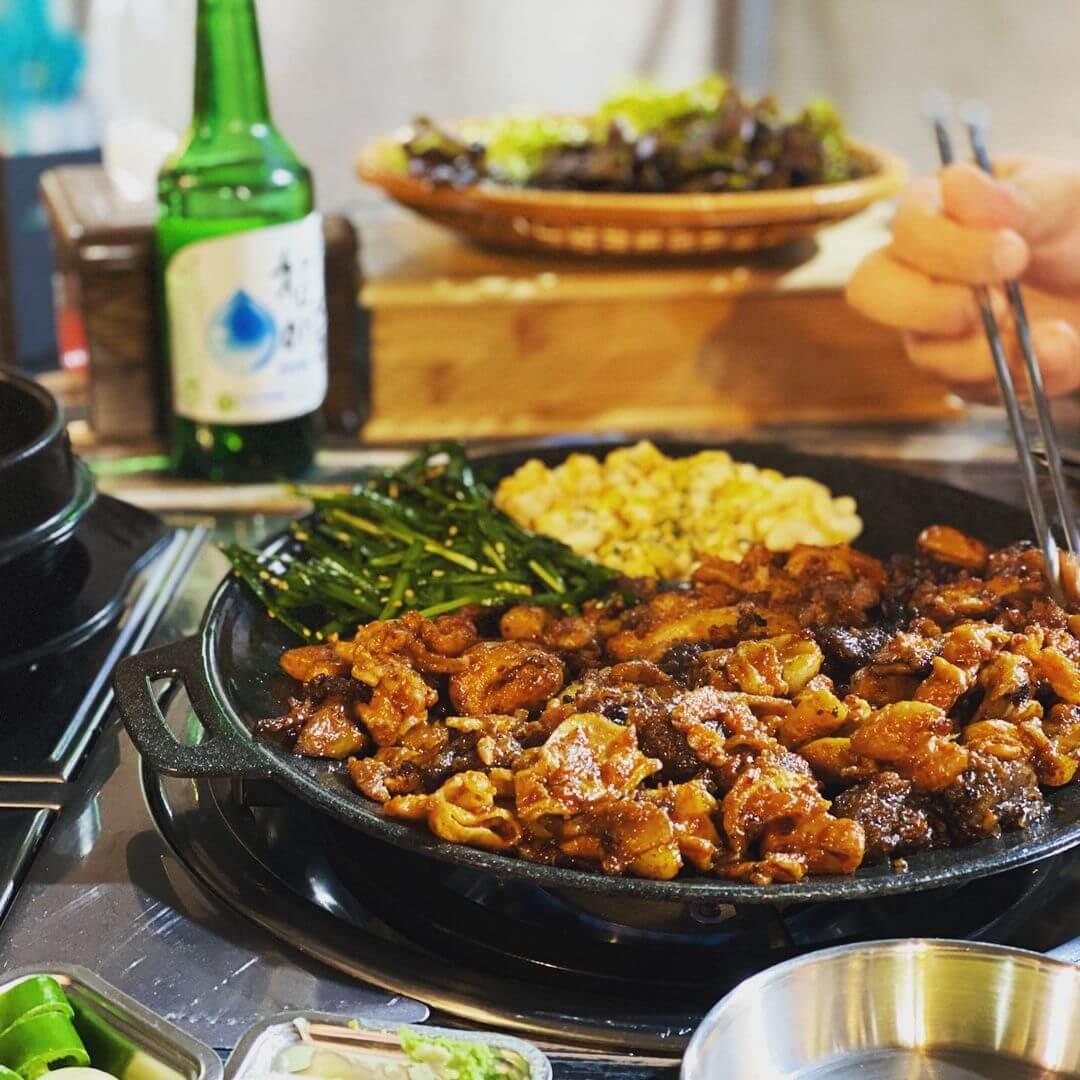
Image credit: @rascal_____0
If there’s a paradise for free stuff, it’s got to be Korea. Shops and restaurants in Korea are generous when it comes to giving out freebies to boost customer loyalty. The Konglish term that describes this is seo-bi-seu, which comes from the word “service”.
Restaurant owners often say “서비스 입니다” (seo-bi-seu-im-ni-da) as they place a side dish you didn’t order on your table. Don’t panic – it’s free. Besides getting dishes on the house, you can also get service at retail shops in the form of free gifts and samples.
16. 셀프 (sel-peu)
Another Konglish term you’d frequently see and hear at Korean restaurants is sel-peu, which comes from the word “self”. It is an abbreviation of “self-service” and is used in eateries where you have to help yourself to water, side dishes, and cutlery.
17. 콘센트 (kon-sen-teu)
While kon-sen-teu sounds like “consent”, it does not mean anything like that. The Konglish term is actually derived from the short form of “concentric electric outlet”. It refers to a power socket or electrical outlet. Another Konglish term closely related to kon-sen-teu is 멀티탭 (meol-ti-taeb, multi-tab), which means “extension cord”.
18. 개그맨 (gae-geu-maen)
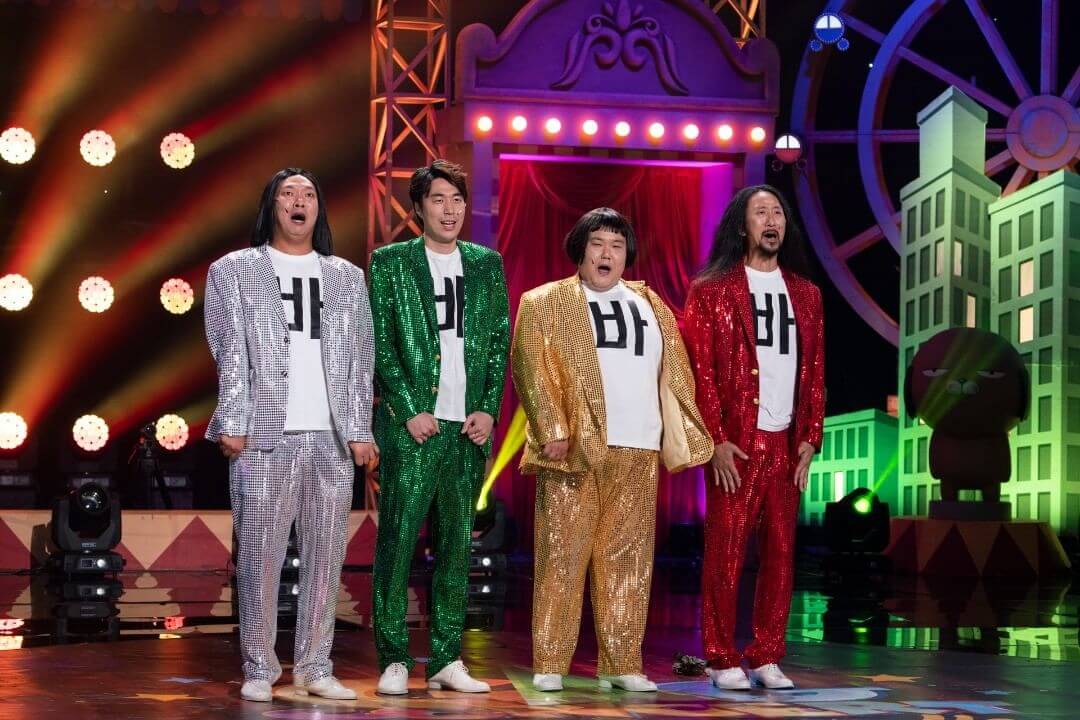
Image credit: @kbs_gagconcert
Gae-geu-maen literally means “ gagman”. Here, the word “gag” is used to mean “joke”, rather than “vomiting” or “silencing someone”. The gender-neutral Konglish term refers to comedians.
19. A/S
A/S is pronounced as ae-ee-eh-seu and stands for “after service”. It refers to aftersales customer service. If your products go on the fritz while they’re still under warranty, you’d take it to an A/S센터 (ae-ee-eh-seu-sen-tor; after-service centre) to get them repaired.
20. 빅 사이즈 (bik-sa-ee-jeu)
This is derived from the term “big size” in English, and it’s used to refer to plus-size clothing. Most independently owned clothing stores in Korea only carry standard sizes – S, M, and L – or free size clothing. If you’re shopping for plus size clothing in Korea, look out for signs with 빅 사이즈 (bik-sa-ee-jeu) on it.
21. 노답 (no-dab)
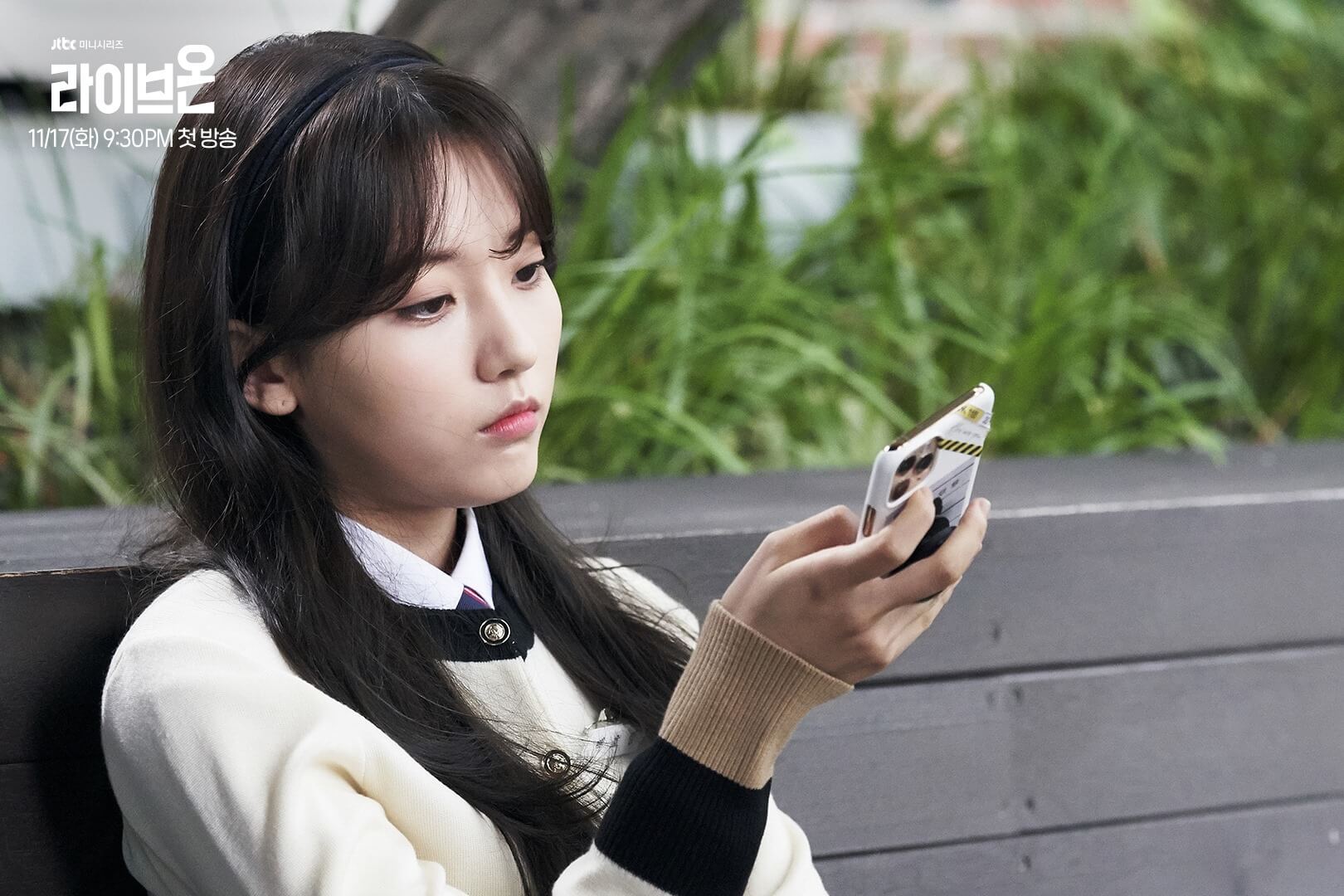
Image credit: JTBC Drama
No-dab is a combination of the English word “no” and the Korean word “대답” (dae-dab; reply). It is used in scenarios where someone doesn’t respond to your text. The Konglish word 노 (no) can also be used in front of other verbs to mean the negative result of something.
For example, Sam Kim’s song, NO눈치 (nun-chi) refers to someone who has poor situational awareness.
22. 핸들 (haen-deul)
Haen-deul is derived from the English word “handle”. Contrary to its English definition, the Konglish term specifically means “steering wheel”. A door handle, on the other hand, is called a 손잡이 (son-jab-ee), which translates to “something that you can hold onto”.
23. 원피스 (won-pi-seu)
Won-pi-seu is exactly like what it sounds like – “one piece”. And no, it does not refer to the popular anime. The term refers to dresses. Online Korean shopping sites will have a category called 원피스 (won-pi-seu), where you’d find a wide range of dresses, from mini dresses to maxi dresses.
24. 맨투맨 (maen-tu-maen)

Image credit: tvN 드라마(Drama)
Because maen-tu-maen sounds like the English phrase “man to man”, it can be mistakenly interpreted as heart-to-heart conversations between men.
The Konglish term actually refers to sweatshirts or crew neck shirts. The origin of this term is disputed, but one common explanation is that it came from sweatshirt-wearing athletes who would face each other – man to man – while warming up.
25. 가글 (ga-geul)
Ga-geul comes from the English word “gargle”, which is the action of rinsing one’s mouth. It’s also used to refer to the liquid you use for gargling.
In Korea, the Konglish term only refers to mouthwashes. When you go into a drugstore, you’ll often find mouthwash labelled as 가글 (ga-geul).
26. 본드 (bond-deu)
The term bon-deu is derived from “bond” in English, but means “glue” in Konglish. Because glue helps to bond things together, Koreans have adopted the word to refer to glue.
27. 오픈카 (oh-peun-ka)

Image credit: KBS 드라마
An oh-peun-ka, or “open car”, is a very literal way of describing a convertible – a car with a roof that can open up.
28. 마마보이 (ma-ma-bo-ee)
Ma-ma-bo-ee is derived from “mama’s boy” and carries the same meaning as the English term. It refers to a man who is subservient to his mother and would do anything to please her.
A ma-ma-bo-ee usually fails to act independently and depends on his mother to make decisions for him.
29. 헤어밴드 (hye-eo-baen-deu)
If you go into an accessories shop in Korea asking for a hairband, you might not get what you’re looking for. Hye-eo-baen-deu means “hair tie”, rather than a rigid horseshoe-shaped band of plastic or metal that holds your hair back. The Korean term for “hair tie” is 머리끈 (meo-ri-kkeun), while “hairband” – or “headband” – is known as 머리띠 (meo-ri-ddi).
That said, the term “hairband” in English can also be used to refer to elastic hair ties.
30. 바디 라인 (ba-di-ra-in)
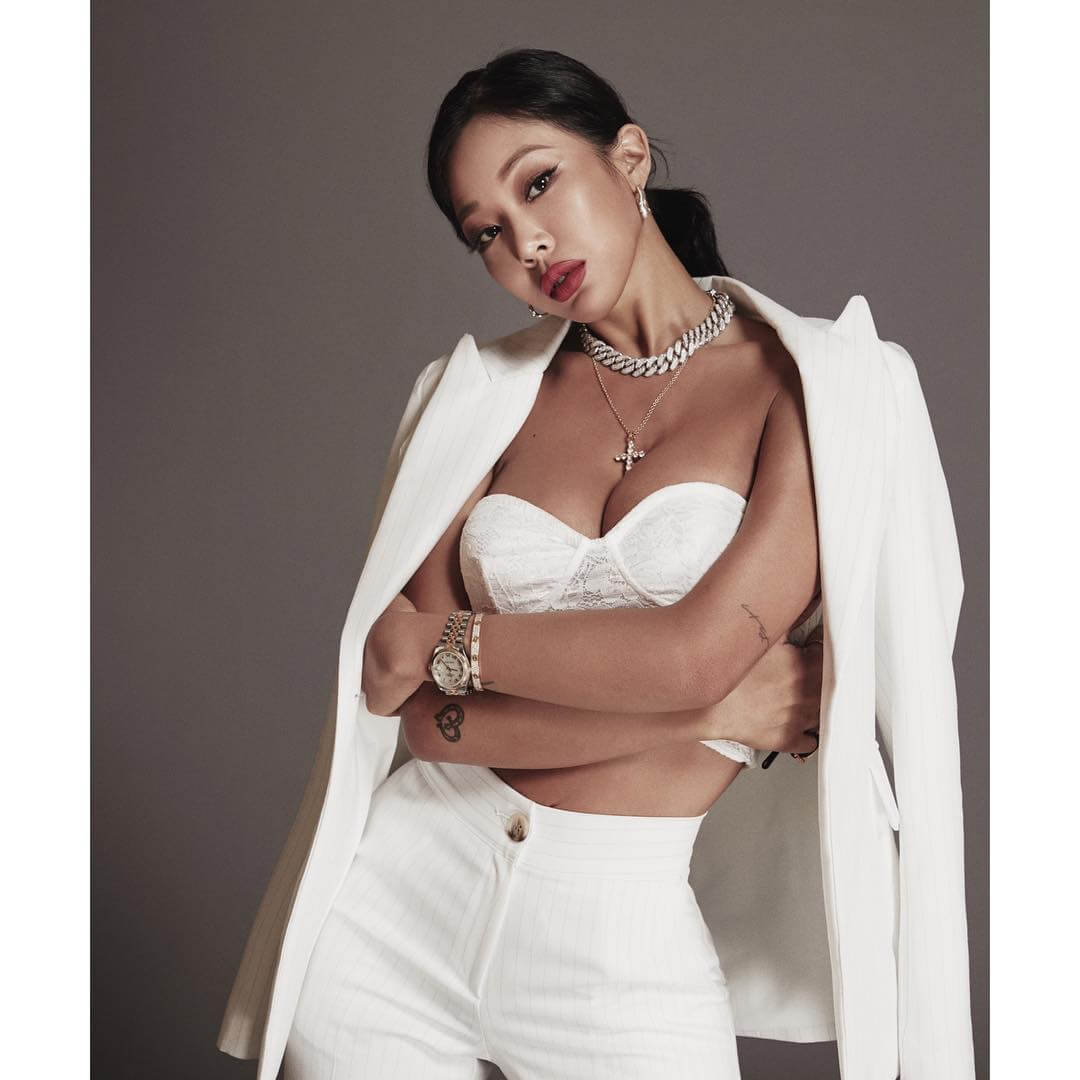
Image credit: P NATION
In an image-conscious society like Korea, you’re bound to hear people talking about ba-di-ra-in – “body line”. The Konglish term is used to point out someone’s figure – or more specifically, the lines that their body creates.
When you say that someone has a nice “body line”, it means that that person has an ideal body with nice curves and angles. Another variation of this term is 몸선 (mom-seon).
31. 더치 페이 (deo-chi-peh-ee)
Deo-chi-peh-ee is a transliteration of “Dutch pay” in English and describes the act of splitting the bill so that individuals can pay for their own share.
In English, we would usually say, “Let’s go Dutch”. In Korean culture, however, people don’t usually go Dutch and would take turns to pay during separate occasions.
32. 오바이트 (oh-ba-ee-teu)
This Konglish term sounds like the English word “overeat”, but it actually refers to the act of puking. The meaning of oh-ba-ee-teu comes from puking due to overeating. However, people use the Konglish term as a general description of someone vomiting, regardless of the cause.
33. 나이트 (na-ee-teu)
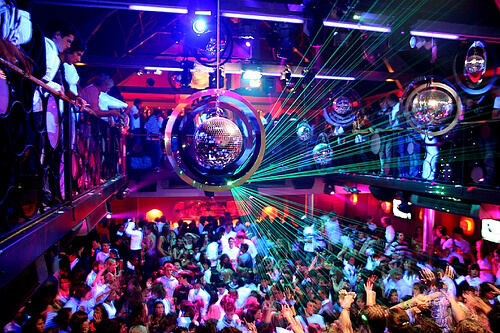
Image credit: Club in Korea
Koreans use na-ee-teu, or “night”, when asking others to go on a night out.
34. 오바하다 (o-ba-ha-da)
O-ba-ha-da is derived from the English word “over”, and is used when someone is being extra. A similar Korean slang word is MSG (em-eh-seu-ji), which is the acronym of “monosodium glutamate”. Both terms are used to describe a situation where someone exaggerates or embellishes a story – just like adding MSG to a dish – for extra flavour.
35. 팬티 (paen-ti)
“Panty”, in English, refers to underpants for women and children. However, this Konglish word is actually a gender-neutral term for underpants in Korea. The type of paen-ti is divided into 2 subcategories – 남성팬티 (nam-seong-paen-ti) for male underwear and 여성팬티 (yeo-seong-paen-ti) for female underwear.
36. 헬스장 (hel-seu-jang)
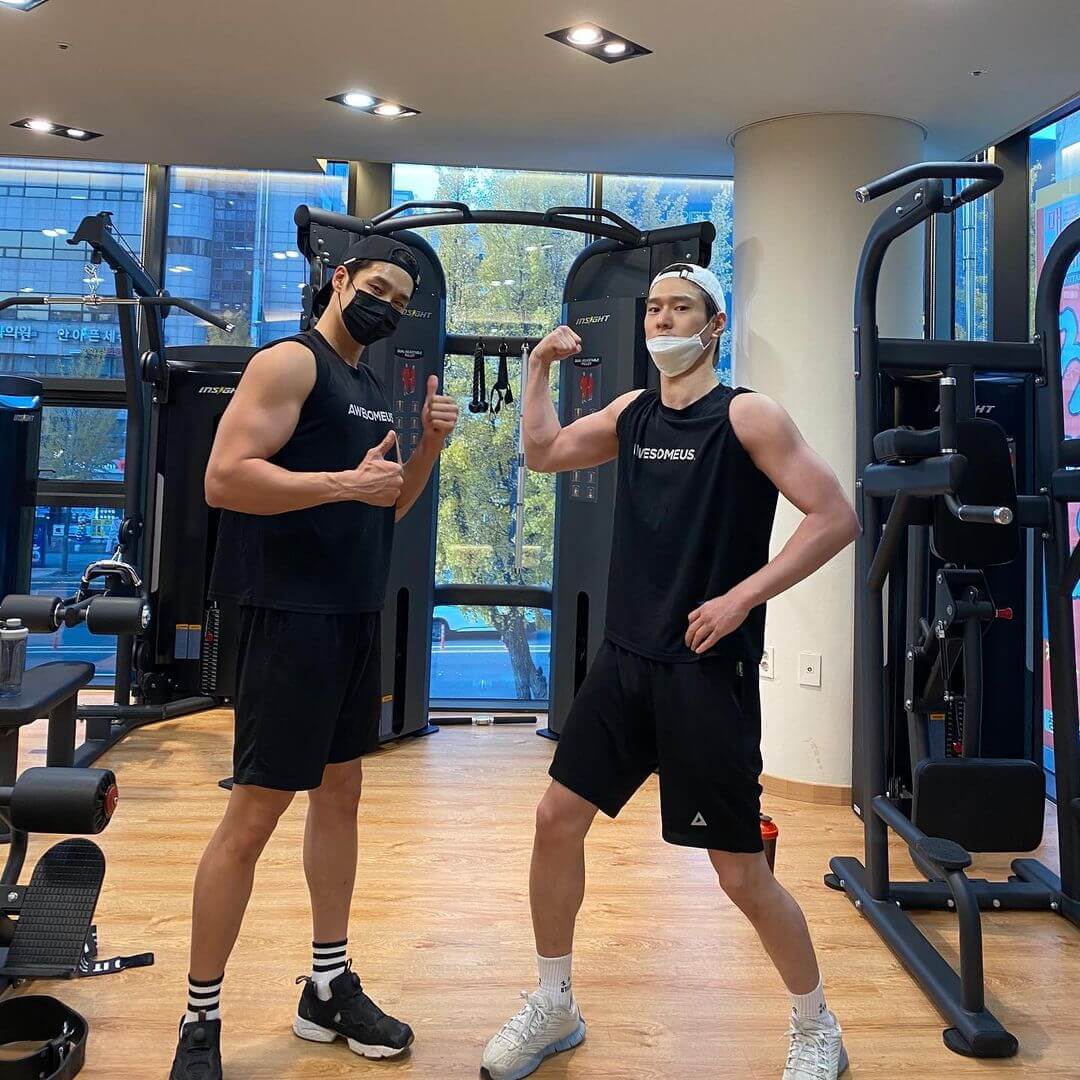
Image credit: @kopular
We exercise and train at the gym to be healthy, and that’s exactly why a gym is known as hel-seu-jang in Korea. It is formed by combining “헬스” (hel-seu; health) and “장소” (jang-so), the latter of which means “place”.
The Konglish term directly translates to “health place”. Some people also refer to the gym as 헬스 클럽 (hel-seu-keul-reob), which is “health club” in English.
37. 러닝머신 (reo-ning-meo-shin)
Reo-ning-meo-shin is what it sounds like – a running machine. We’re more familiar with the English term “treadmill”, but the Koreans like to keep it simple by calling the machine what it’s used for.
38. CC/씨씨 (sshi-sshi)
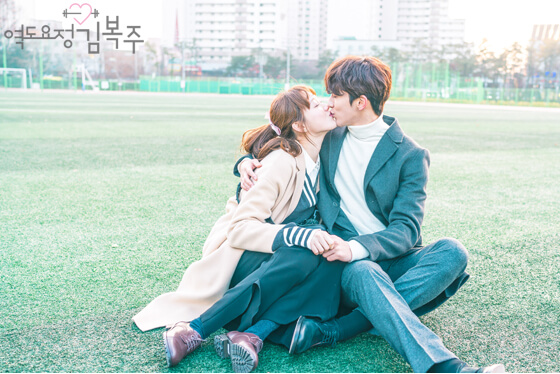
Image credit: MBC
CC is an abbreviation of the term “campus couple” and it’s used for couples who got together on the same campus. Initially, CC was only used for university couples, but the term now encompasses high school and middle school couples too.
39. 선크림 (seon-keu-rim)
In Korea, you’ll find sunscreen labelled as 선크림 (seon-keu-rim) or 썬크림 (sseon-keu-rim). Seon-keu-rim means “sun cream” in English and refers to sunscreen. Some countries, such as the UK, use the term “sun cream” as well.
40. 포켓볼 (po-ket-bol)
In Korea, pool and billiards are known as po-ket-bol – “pocket ball” in English.
41. 아파트 (a-pa-teu)

Image credit: @mallang_teo
A-pa-teu is an abbreviation of “apartment”. An apartment in Korea is a single unit in a condominium. Apartments can vary in room size, starting from as small as a one-room studio.
Learning Konglish words
Because some Konglish words don’t mean the same thing as their English equivalent, it’s always good to double-check to avoid embarrassing situations. Armed with the knowledge of popular Korean slang terms and these Konglish words, you can confidently tell others that you’ve levelled up your Korean.
Check our other K-culture articles:
- Popular Korean slang in 2020
- Newtro trend in Korea
- Seoul then & now
- Nostalgic 2nd gen K-pop groups
- 2021 Korean dramas
Cover image adapted from (left to right): JTBC Drama, MBC and JTBC Drama
